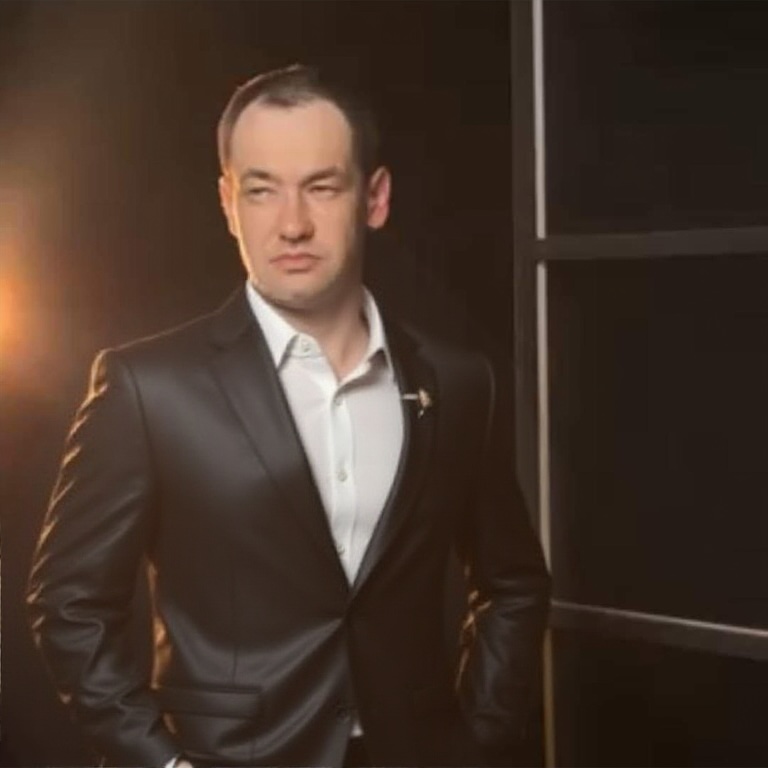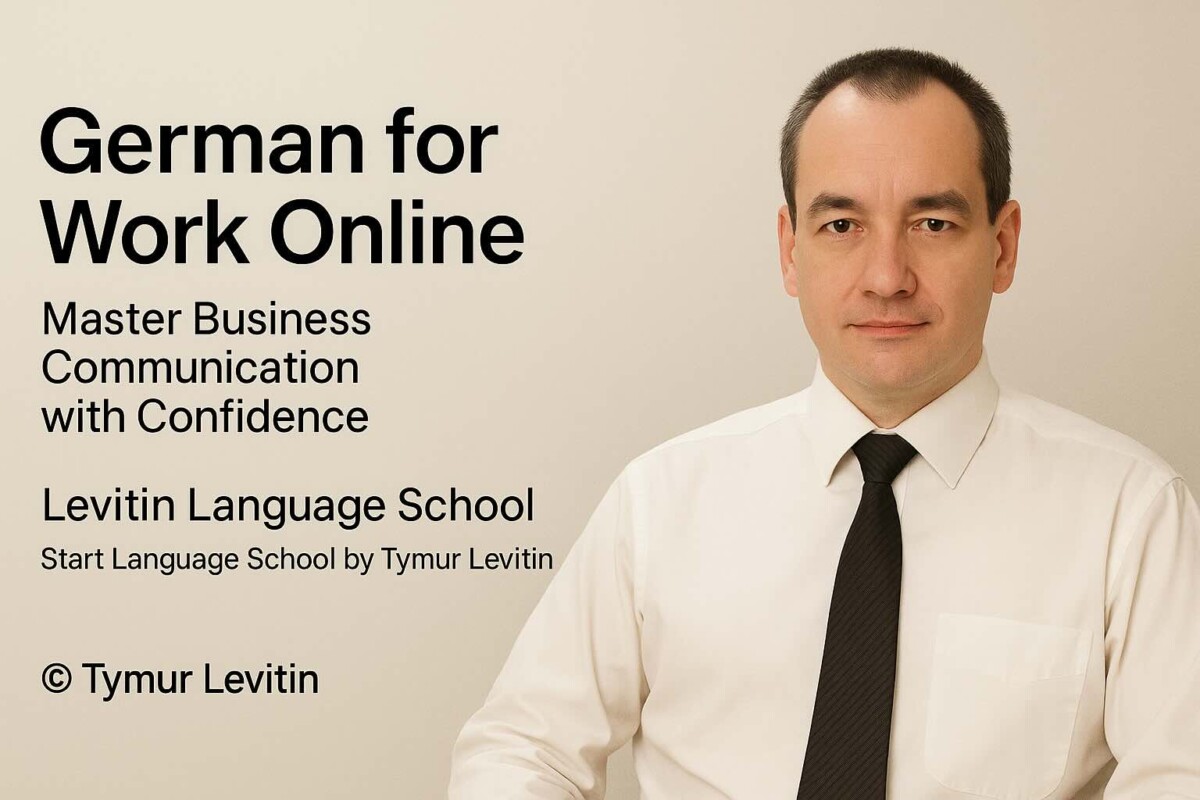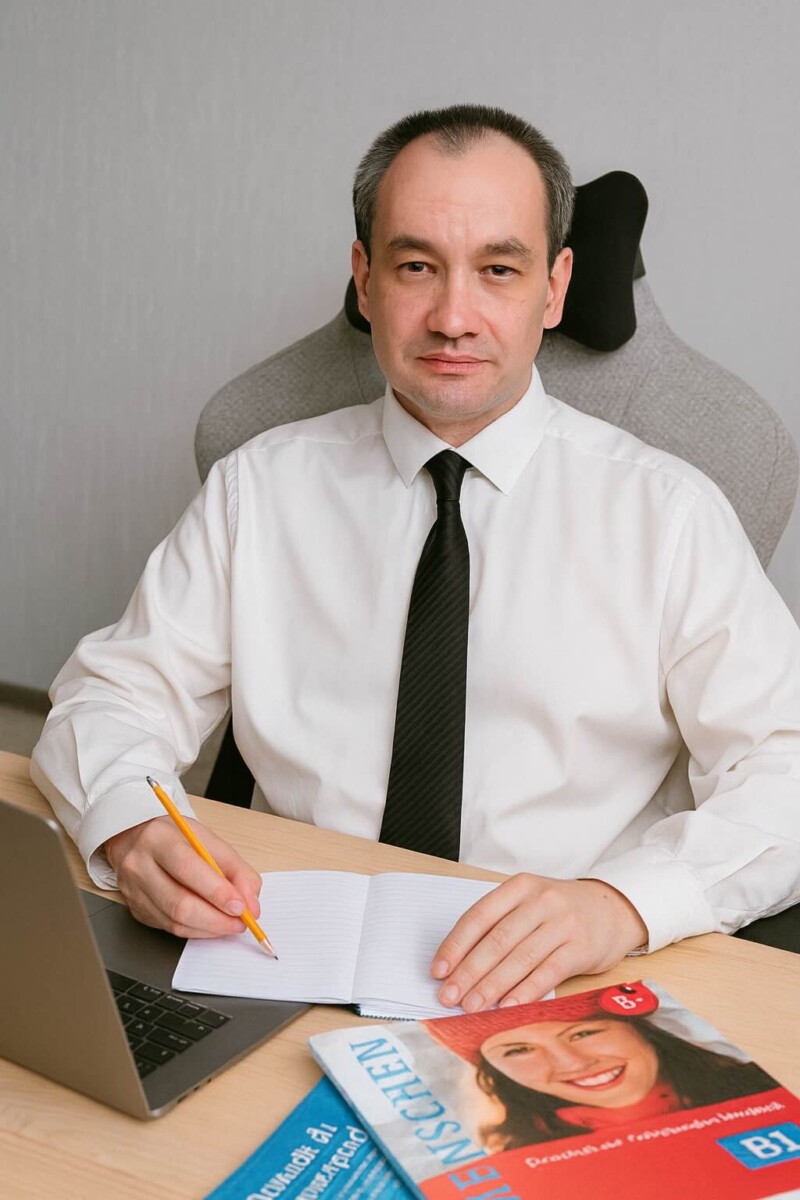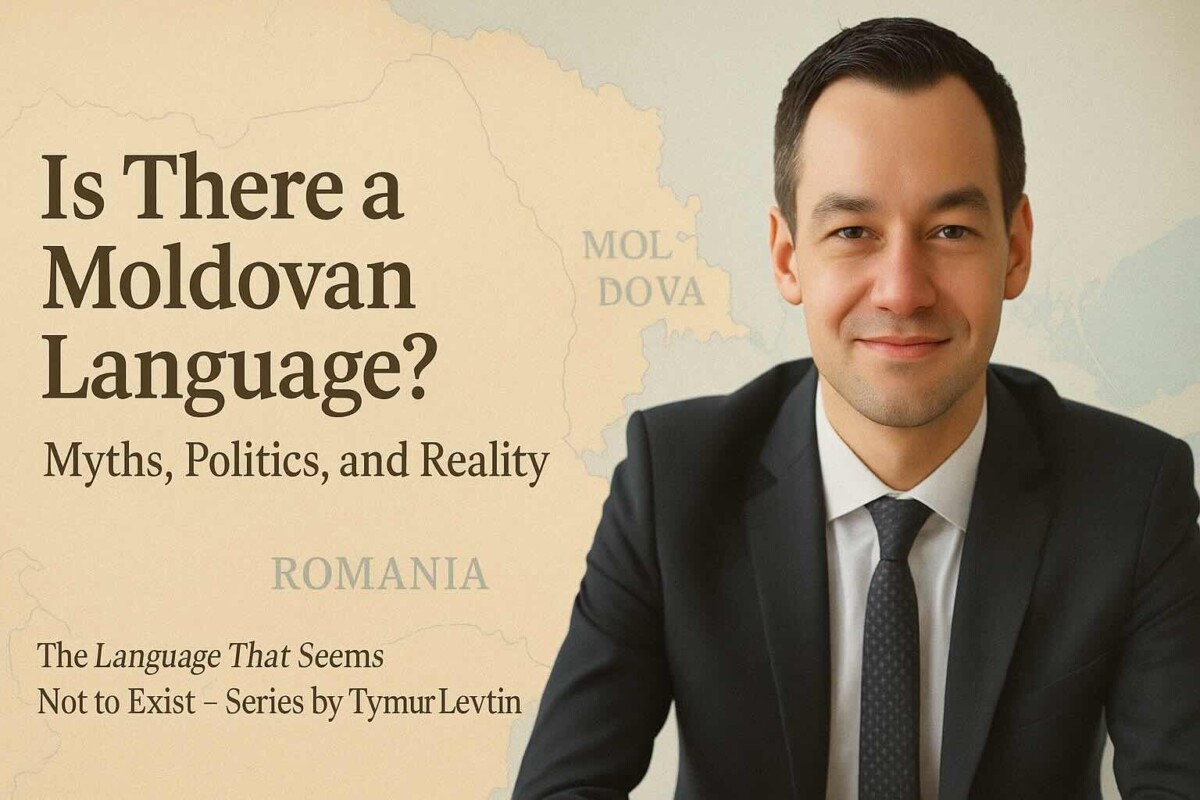🔗 Choose your language: https://levitinlanguageschool.com/#languages
The Comfort Zone Trap
Most textbooks — and sadly, many teachers — recycle the same safe topics: “My house,” “My family,” “My hometown.”
Students describe the same things again and again, polishing familiar vocabulary and comfortable grammar patterns.
But here’s the problem: staying in that comfort zone may make your language “fluent,” yet it never makes it grow. You can tell the same story about your house ten times — but you will never need a new construction, a new word, or a new thought.
Why I Ask Hard Questions
In my classes and speaking clubs, I often ask my students something very different:
- Is black and white just two colors, or two opposite ideas?
- Is there a difference between truth and absolute truth?
- Where does freedom end and responsibility begin?
At first, my students are surprised. Some even say: “But how can I answer that in English/German? I’ve never thought about it even in my own language!”
That’s exactly the point.
These questions push you out of autopilot. They force you to search for words, to build new structures, to express ideas you never rehearsed before. That’s where real learning happens.
Thinking First, Language Second
Here is the paradox: sometimes you need to think in your native language first — to even decide what you believe — and only then try to express it in a foreign language.
This process does two things at once:
- It develops your thinking. You reflect, compare, make choices.
- It develops your language. You stretch your vocabulary and grammar to match the complexity of your thought.
Suddenly, you are not saying “My house has three rooms.” You are saying: “I believe truth is relative because…” or “Black and white exist only as contrast.”
That is a completely different level.
Why This Is My Method
This is not a gimmick. It’s my philosophy of teaching:
- Language is not a collection of phrases. It is a tool for thinking.
- Growth does not happen in comfort. It happens when you are forced to express something new.
- Real fluency is not repeating what you know. It is discovering how to say what you never said before.
That’s why I will never stop asking my students difficult, even philosophical, questions. Because only there — outside the zone of “My family” — do they find their real voice.
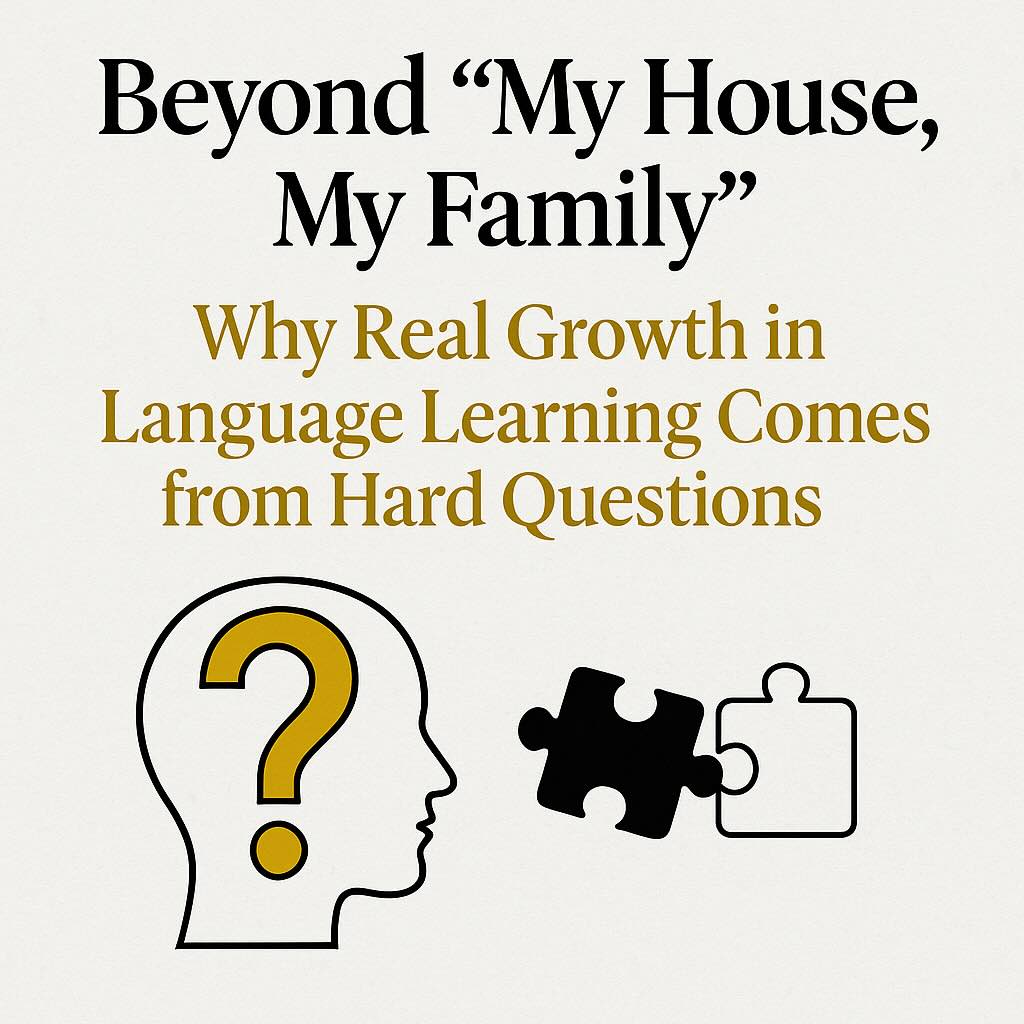
Internal Links (Further Reading)
- English Conversation Practice: Overcome Fear and Speak with Confidence
- Myth: You Need a Language Talent to Learn a Language
- Stop Memorizing. Start Thinking.
✍️ Author’s Column by Tymur Levitin — founder, director and senior teacher of Levitin Language School (Start Language School by Tymur Levitin).
🌍 My LinkedIn Profile



















